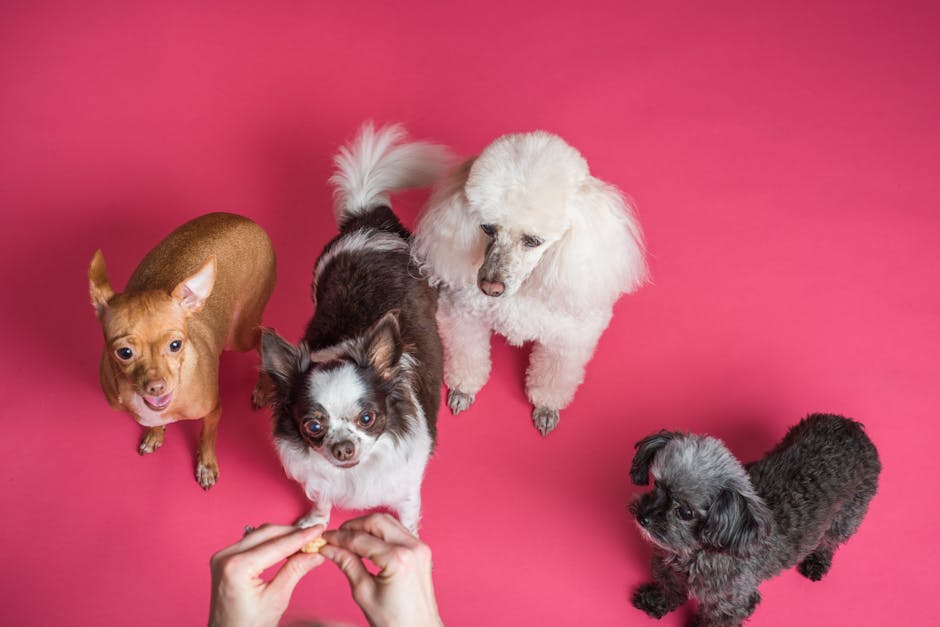Bringing a new puppy home is an exhilarating experience, filled with boundless energy and adorable antics. However, navigating the early stages of puppyhood requires a thoughtful approach to ensure the development of a well-adjusted, happy, and obedient companion. Effective training isn’t about imposing strict rules; instead, it’s about fostering a strong bond and teaching your puppy essential life skills. This article explores a range of strategies for successful puppy training, encompassing foundational commands, socialization, and addressing common challenges.
Establishing a Strong Foundation: Early Training Principles
From the moment you bring your puppy home, consistent training is paramount. Focus on establishing a predictable routine that integrates food, playtime, rest, and potty breaks. This routine provides structure and helps the puppy understand expectations. A key principle in early training is positive reinforcement. Instead of punishment, concentrate on rewarding desired behaviours. Treats, praise, and even a playful game are effective motivators. Consistent application of positive reinforcement builds a strong association between the desired behaviour and reward, leading to more rapid learning.
Crucial Commands: Building a Vocabulary
Early training should begin with foundational commands, such as “sit,” “stay,” “come,” and “down.” These commands form the bedrock of obedience and provide crucial control over your puppy’s actions. Use a clear, concise command tone, avoiding yelling or harsh corrections. Pair the command with a visual cue, like a hand gesture. Short, frequent training sessions are more effective than long, drawn-out ones. Focus on one command at a time and repeat it consistently until your puppy masters it. Once mastered, incorporate them into everyday interactions, reinforcing the command regularly.
Mastering Potty Training: Essential Hygiene and Discipline
Potty training is often a significant challenge, but patient and consistent attention to detail is key. Establish a regular potty schedule, taking your puppy outside frequently, particularly after waking, eating, or playing. Use consistent cues like phrases or hand signals to let your puppy know it’s time to potty. Reward the behaviour immediately upon eliminating outside. Accidents happen, and react calmly. Clean up thoroughly and avoid scolding or punishment; this will only confuse the puppy. Invest in appropriate puppy pads for accidents in the house, which can act as a helpful backup method for when outdoor potty breaks aren’t possible.
Socialization: Key to a Well-Adjusted Dog
Puppy socialization is vital for developing a well-adjusted and confident dog. Expose your puppy to various environments, people, sights, sounds, and other animals in a controlled, positive manner. Start with short, controlled interactions to avoid overwhelming the puppy. Ensure that all encounters are positive and that your puppy feels comfortable and safe. This early exposure will help prevent fearful behaviours and aggressive tendencies in the future. Consult your veterinarian or a professional dog trainer to develop a safe and effective socialization plan.
Addressing Common Challenges: Patience and Persistence
Training any puppy entails addressing challenges like chewing, jumping, barking, or excessive energy. Understand that these behaviours are often expressions of puppy curiosity or developmental needs, not deliberate defiance. Provide appropriate chew toys to redirect chewing behaviour from furniture or shoes. Positive reinforcement helps immensely here. Address jumping behaviour by preventing it. When your puppy jumps, turn away, and only engage with them once they’ve calmed down. For barking, identify the triggers and redirect their attention with engaging activities. If excessive energy persists, incorporate regular exercise and mentally stimulating activities. Consistency and understanding are crucial in overcoming these hurdles.
Developing a Supportive Routine: Long-Term Success
Maintaining consistency in training and routine is essential for long-term success. Establish a clear schedule for feeding, playtime, rest, and training. This structure provides predictability for your puppy, fostering a sense of security and reinforcing the behaviours you wish to encourage. Remember that training isn’t just about obedience; it’s about building a strong bond with your puppy based on trust and mutual respect.
Seeking Professional Guidance: Expertise for Complex Issues
When faced with complex behavioural challenges or doubts about your training methods, seeking professional guidance from a qualified dog trainer or veterinarian is always a prudent step. A professional can assess your puppy’s specific needs, provide tailored advice, and address any underlying concerns. They can also provide invaluable insight into your puppy’s behaviour and ensure you’re on the right path for optimal development.
Conclusion: Partnership for Success
Training a puppy is a journey of partnership, not a race. Patience, consistency, and a positive approach are fundamental to achieving success. By understanding your puppy’s developmental needs and tailoring your training methods, you can foster a strong bond and build a well-adjusted, happy companion. By focusing on building a supportive environment and utilizing positive reinforcement techniques, you equip your puppy for a lifetime of joy and companionship. Remember that early training sets the stage for future success and lays the foundation for a beautiful and lasting relationship with your furry friend.
